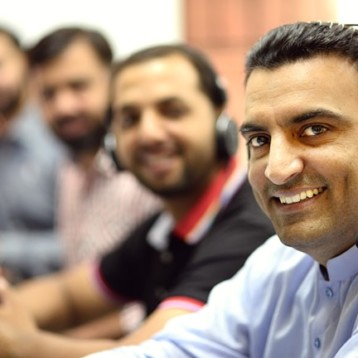Is journalism about to undergo a dramatic change? if you ask Entrepreneur Mati Kochavi who founded the new start-up Vocativ the answer is a definite yes. This new site tries to find news stories on parts of the internet that are typically not accessible to regular search engines using technologies which so far have been used primarily by spy agencies including the NSA.
Did you know that a huge percentage of the internet is not accessible to normal search engines such as Google or Bing? (some estimate that up to 80% of the internet isn’t indexed and therefore is practically invisible to most users). What can you find on these uncharted online deserts? some of it appears to be dynamic content (pages which are created only as a response a submitted query or accessed through a form), others are pages or sites which requires passwords to enter (anything from private company pages to administrative pages on websites). Much of this content is meaningless, uninteresting or completely personal, but Mati Kochavi believes that just like the NSA and other spy agencies learned to mine every part of the web for information, journalists should do the same (Kochavi himself isn’t a complete foreigner to the spying game – he did his service in the Israeli army in the intelligence core).
However unlike the NSA, Kochavi is quick to mention that Vocativ which is based on technology developed for one of Kochavi’s other companies called 3i-MIND, does not mine private data or break into secured networks, it does however look where normal search engines don’t (or rather can’t) go.
Kochavi got the idea for Vocativ after seeing the so called “Arab spring” – the wave of protests that started in Tunisia and quickly spread to Egypt, Yemen and started the bloody civil war in Syria. Kochavi was wondering how can these great events happen without any prior signs.
There is not a lot of information regarding the exact way in which Vocativ’s technology actually penetrates and search the deep web. This is hardly surprising as this is the core technology of the company and something its developers and its owner would like to keep away from potential competitors (Kochavi which is quoted as telling Forbes magazine that he has no plans to sell the technology and will only sell the products – i.e. articles created by his team using the technology, and that some media body’s have already shown interest in Vocativ’s unique content).
Looking at the Vocativ website (currently in beta mode), it seems that Kochavi’s team still has a lot of work to do before they can call the project a new type of journalism. Yes, there is supposedly some real journalistic work done by some of the writers of Vocativ – see for example this story Aram Roston entitled “The Colonel and His Labyrinth” which deals with a U.S. secretive and shadowy organization known as Big Safari (actually it is so secretive that it has its own wikipedia page…) and the way U.S. tax payer’s dollars are really spent by the Pentagon. But despite Kochavi’s claim that 80% of the articles on Vocativ have never appeared on mainstream media before, our eye caught many stories that seemed very familiar.
Nevertheless, the idea of tapping into parts of the internet that have so far not been looked at or searched in order to find interesting stories and understand the state of mind of people in a new way is something that has a lot of potential if done correctly. It might be interesting to see more focus on some of the things that happen on what is known as the Darknet – an “isolated” underground part of the deep web which harbors everything from anti government political activists to human and drug trade and any type of activity which you don’t normally find on the “open” web but still takes place outside the realms of the internet.
What is Vocativ video




![10 Top Game Sites Not Blocked By School [2024 Updated]](https://thefutureofthings.com/wp-content/uploads/2024/10/image-25-358x358.png)






